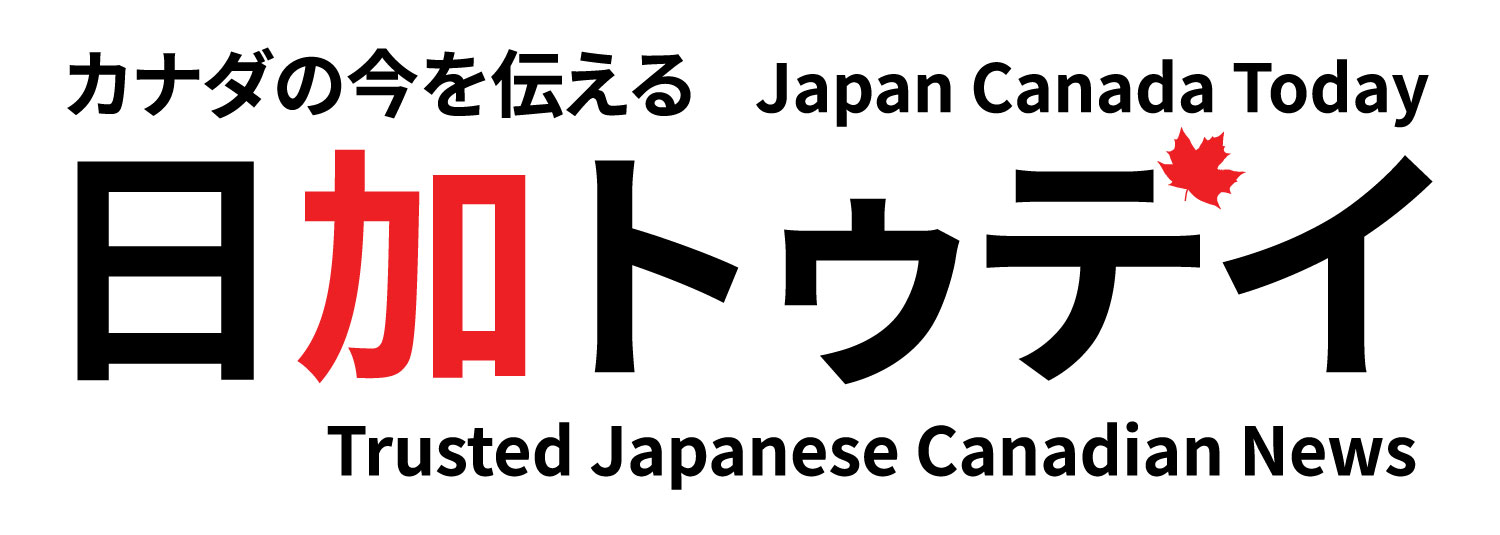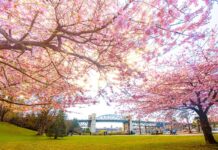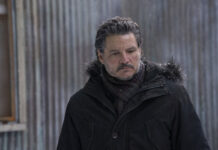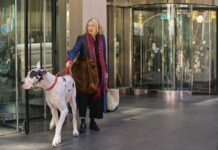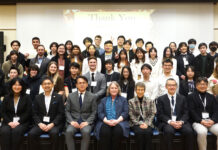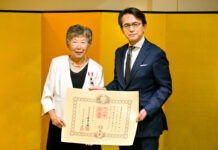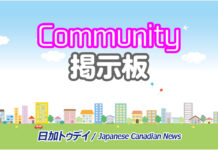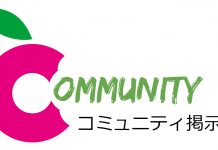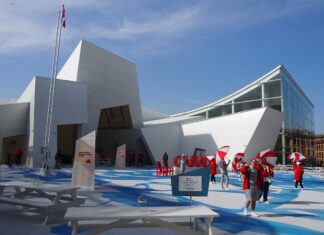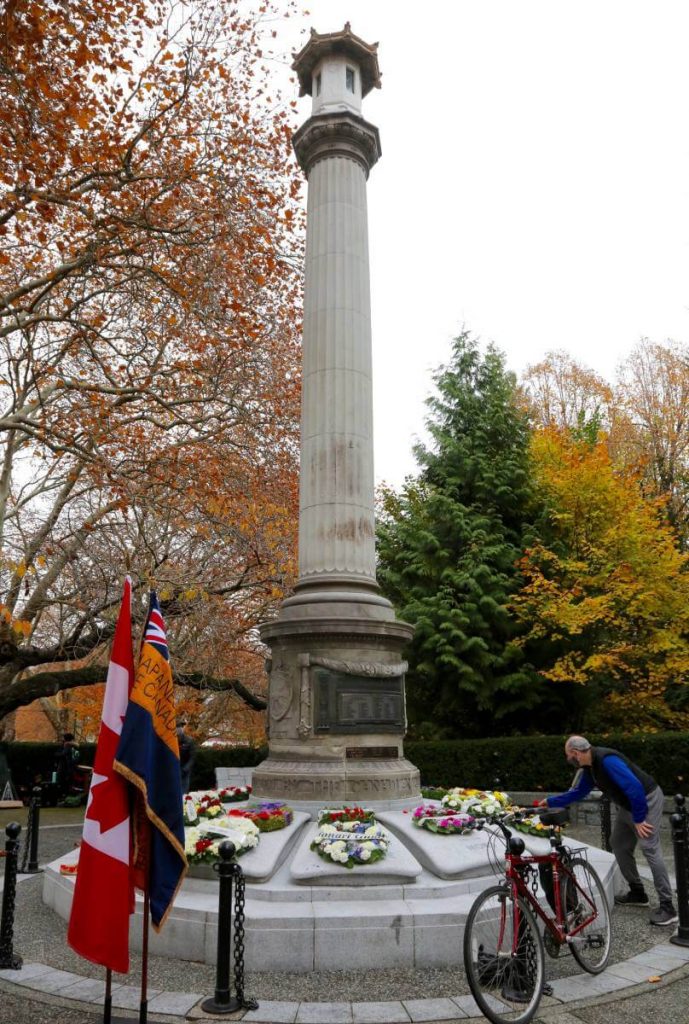
On Remembrance Day, November 11, a memorial service was held in front of the Japanese Canadian War Memorial in Stanley Park in Vancouver, British Columbia.
In previous years, the event had been crowded, and completely filled with visitors. But this year, due to COVID-19, the ceremony was held for officials only. Instead, there was an online live-streaming of the event that everyone could watch from home.
The ceremony began at 10:30 a.m. with a valiant drumming performance by Emiko Newman and John Endo Greenaway. Keiko Norisue then sang “O Canada,” which was followed by a prayer from Reverend Daebin Im of the Japanese United Church. A two-minute silent prayer followed.
The weather that day was cold, but a poem by Eileen Kitamura and a speech by David Mitsui for the Japanese Canadians who fought in the war warmed everyone’s hearts.
This year, due to the pandemic, Federal Liberal MPs Hedy Fry and Joyce Murray, and BCNDP MLA Anne Kang, gave video addresses. Then, Kathy Enros and Susan Yatabe, both of whom have a connection with veterans, also presented their speeches as representatives of the younger generation.
At the end of the ceremony, the Consul General of Japan in Vancouver, Takashi Hatori, and the representatives of 20 organizations laid a wreath at the cenotaph, and the ceremony concluded with the song “God Save The Queen,” sung by Keiko Norisue.
“Never again”
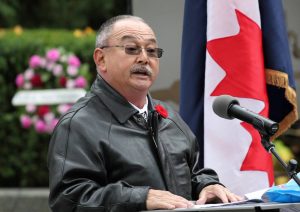
Mr. David Mitsui’s grandfather was an Issei, the first generation of Japanese immigrants, and he fought in the First World War for Canada. During an interview, David Mitsui talked about his beliefs in living as a sansei (the third generation), addressed racism and nationalism in the present and the past, and discussed what he wants to share with young people.
His grandfather, Masumi Mitsui, immigrated from Japan, fought and risked his life for Canada in the First World War, and was thus rewarded with the right to vote.
However, his Nisei parents, the second generation, were treated as enemy aliens when the Second World War broke out. Their house and properties were confiscated, and they were sent to an internment camp. His father, George, buried his great-grandfather’s artifact, a samurai sword, on a farm in Port Coquitlam in 1942, shortly before he was forcefully moved. After the war, he returned to the farm to retrieve the samurai sword and gave it to David in 2011 before he died, along with the medals Masumi was awarded after the First World War.
“I was bequeathed his World War I medals. It was such an honour to have them, and I knew that I was in possession of my family’s history. I knew that I had a responsibility to not only pass it on to my family, especially my daughter Meaghan, but to share my grandfather’s story with others,” he said about Masumi’s legacy.
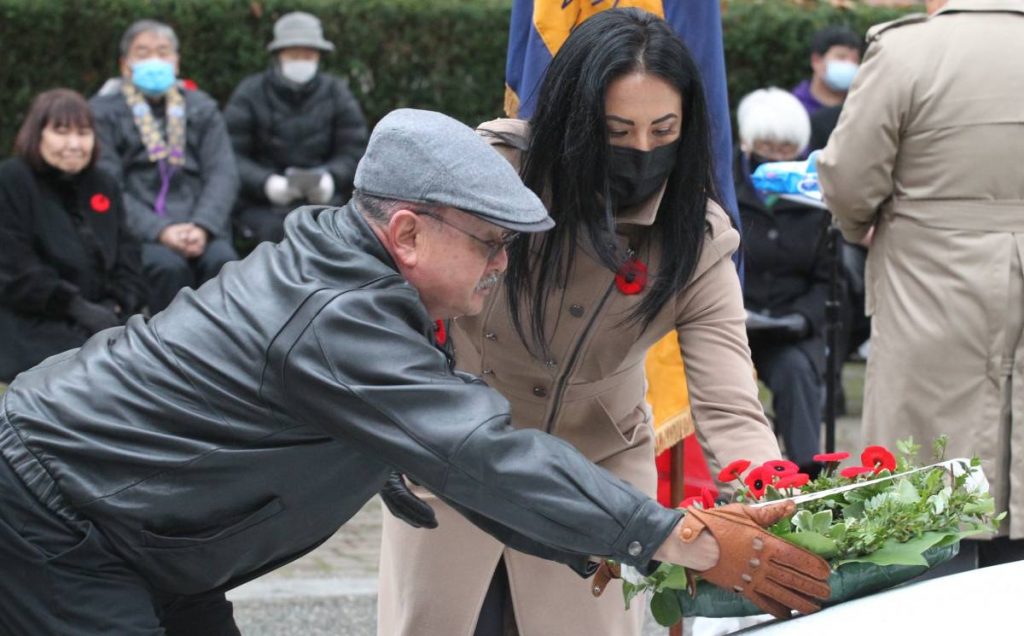
“I cannot think of any other place I appreciate more than living in Canada and being a Canadian citizen. There is no other place in the world like Canada. I value being Canadian, but I also value my Japanese ancestry. My parents, both Nisei, shaped me to who I am today and influenced my beliefs.”
Throughout Canada’s history, the Japanese Canadians were racially discriminated against, notably before and after the two world wars. However, now in 2020, the discrimination against Asian communities still exists for various reasons, including the COVID-19 pandemic.
“I do recall some instances of overt racism in junior high, playground taunts, and high school, especially when dating, mostly the parents who were discriminatory. I learned to cope with it, and I learned to ignore it,” Mr. Mitsui said. “However, I mostly remember being embraced and being accepted like anyone else for who I was. This is especially true in high school and as a young adult. ”
He said that he was a gifted athlete who excelled in any sport he played, including hockey and baseball. “I was able to use my athletic abilities to compete and be part of a team….and be accepted. I did experience some racism playing sports, but it was always from the other team. I dealt with it by working harder to beat them during the game.”
His parents never succumbed to discrimination, and protected David and his brother as best they could, he said. And they taught him to do his best, no matter what.
On the current situation, “it is thought that the initial outbreak of the COVID-19 pandemic started in China. This fact was highly politicized by US President Donald Trump, who referred to it as the ‘China virus,'” Mr. Mitsui said. “This politicization of the virus led to acts of racism against Chinese-Americans and impacted Chinese Canadians as well. It may have also negatively impacted all persons of Asian ancestry, depending on geographic location, but certainly in urban areas populated by many Asian Canadians, such as Vancouver. I am not aware of any Japanese Canadians being specifically targeted. It is said that ‘when the US gets a cold, Canada gets the sniffles’…Canadian society is directly impacted by what is happening in the US.”
“So we are neither immune from the racism that currently exists nor were the Japanese immigrants to Canada in the mid-1880’s. The kind of society and government that existed in Canada in the late 1800s and early to mid-1900s was fraught with racism and discrimination against all Asian cultures.”
He said we are here today because of the sacrifices of the Issei in World War I, the Nisei in World War II and the Korean War, and the Sansei who fought in Afghanistan. It may take time, but he hopes that “the younger generations of Japanese-Canadians need to learn Japanese Canadian history. In fact, all Canadian schoolchildren should learn about Japanese Canadian history, and the Landscapes of Injustice Research Project will go a long way in creating educational resources and learning opportunities for all Canadians to ensure that such a tragic and racist event in Canadian history is not repeated against any other visible minority in our country.”
Right now, it is the era of the fourth and fifth generations of Japanese Canadians, he said, and we need to tell them how important it is to get out and vote. “My grandfather’s generation fought for Canada in the war to prove that they could become citizens with the right to vote. The Issei fought and sacrificed their lives during World War I, so neither the right to vote nor our democracy should ever be taken for granted.”
Wreathe Laying
- BESL legion #9: David Mitsui
- S-20 & Nisei Veterans Association: Chris Yamauchi
- JCWMC: Chair Linda Kawamoto Reid
- NAJC: President Lorene Oikawa
- NNMCC: Executive Director Karah Goshinmon Foster
- Consul General of Japan: Consul General Takashi Hatori
- GVJCCA: President Judy Hanazawa
- MP Hedy Fry’s Vancouver Center office: Constituency Assistant Veronica Stolba
- RCMP: Corporal Peter Somerville
- Vancouver City Hall: Deputy Mayor Lisa Dominato
- VPD and Mounted Squad: Superintendent Michelle Davey
- Vancouver Board of Parks & Recreation: Commissioner Stuart Mackinnon
- VJLS & Hall: Executive Director Darius Maze
- Tonari Gumi: Patrick Li
- BC Jodo Shinshu Temples: Ted Akune
- Japanese Christian Churches: Reverend Daebin Im
- Vancouver Konko Faith: Roderick Hashimoto
- Seicho-No-Ie Church: Cleusa S. Yamamoto
- NAV Chorus: Midori Seo
- National Society Daughters of the American Revolution: Nancy McLean
YouTube Video to show the ceremony : Centenary of the Cenotaph
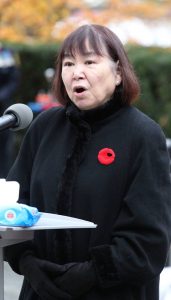
Ms. Keiko Norisue singing O Canada; Photo by ©︎Toru Furukawa/ The Vancouver Shinpo 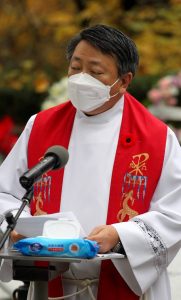
Reflections from Reverend Daebin Im of Japanese United Church. Photo by ©︎Toru Furukawa/ The Vancouver Shinpo 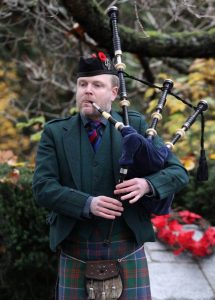
Lament by piper Edward Mcllwaine. Photo by ©︎Toru Furukawa/ The Vancouver Shinpo
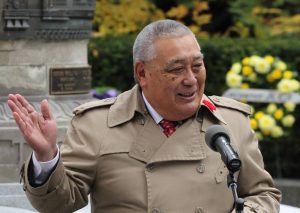
Moderator at the ceremony Mr. David Iwaasa; Photo by ©︎Toru Furukawa/ The Vancouver Shinpo 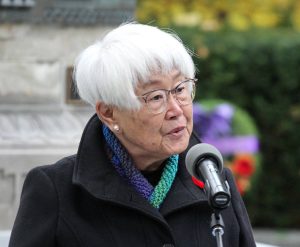
The poem ‘In Flanders Fields’ by Ms. Eileen Kitamura. Photo by ©︎Toru Furukawa/ The Vancouver Shinpo
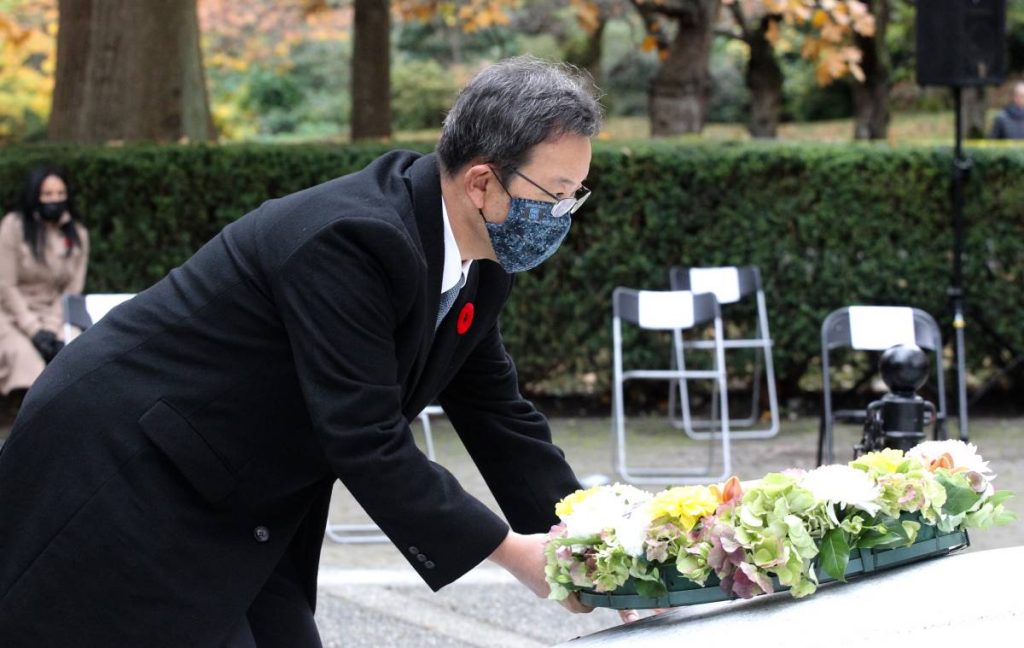
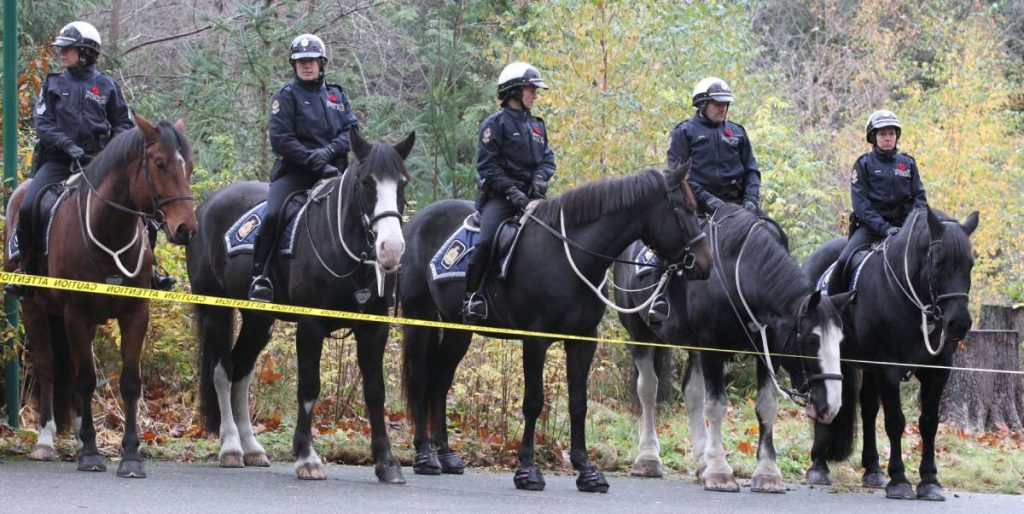
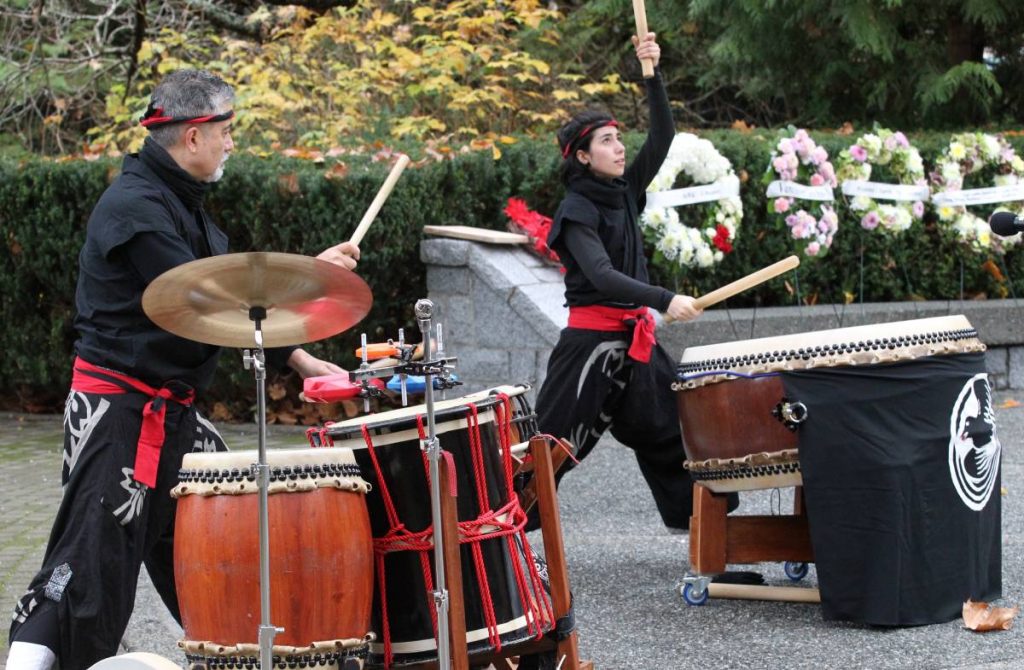
Remembrance Day 2020 Program
Lighter_Remembrance-Day-Program-2020-8-pages-EVG-Crops-REV(Reporting in Japanese/Photos by Toru Furukawa; Translating and editing by Naomi Mishima)
